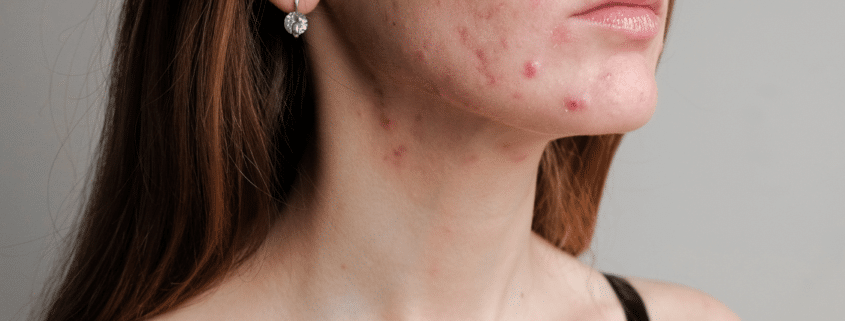Understanding Adult Acne: Causes and Prevention Tips
Could those blemishes really be acne? As an adult, it can be frustrating to encounter that familiar red bump, a common sight in our teen years. Surprisingly, a significant percentage of adults still experience acne, even well into their 50s. Dealing with acne as an adult can be especially aggravating. Treatments that once effectively cleared up acne during our teenage years may now prove ineffective or even exacerbate the condition.
Reasons for adult acne
Adult acne, often referred to as post-adolescent acne, happens after the age of 25. Dermatologists term this occurrence as “adult-onset acne,” which notably affects women undergoing menopause more frequently than men. If you find yourself grappling with acne in adulthood, it’s probable that one or more of the subsequent factors are contributing to its onset.
Hormonal fluctuation
As women age, hormonal fluctuations can trigger acne. The natural decrease in estrogen levels combined with a rise in male hormones can upset the delicate equilibrium, causing an increase in oil production and enlarged pores. Some women experiencing acne along the jawline may uncover a potential underlying issue known as Polycystic Ovary Syndrome (PCOS). Symptoms of PCOS include irregular periods, ovarian cysts, weight gain, facial hair growth, and hair thinning on the scalp.
Stress
Studies have uncovered a clear connection between stress and flare-ups of acne. When we’re stressed, our bodies ramp up production of androgens, exacerbating the issue. Additionally, stress elevates hormones such as cortisol, which can inflame the skin and worsen acne symptoms. These hormones stimulate oil glands and hair follicles, perpetuating the cycle of acne, especially in times of prolonged stress.
Family ties
Acne can run in families. Research studies have shown that people may have a genetic predisposition for acne. If your parents had acne, it’s likely that you’ll also develop it as well.
Hair and skincare products
Your products may be causing you acne. To prevent outbreaks from your products, you should choose products that include the following terms:
- Non-comedogenic
- Non-acnegenic
- Won’t clog pores
- Oil-free
Medications Side Effects
Certain drugs can cause acne or acne-like eruptions. Speak to your provider who prescribed the medication if you suspect that a medicine is triggering your acne or making it worse. If you need to continue with the same medication, consult with one of our dermatologists to help you manage your acne.
Health Issues
Occasionally, acne can indicate an undetected medical problem. Upon proper diagnosis and treatment of the underlying condition, acne frequently diminishes.
If you are dealing with acne, consult with one of our dermatologists. They can evaluate your situation and advise you on the best prevention and treatment options for you.



